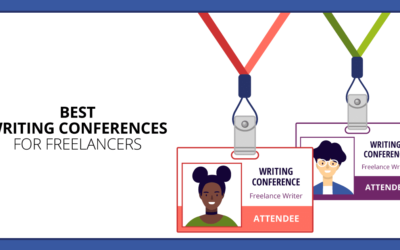If you wanted to learn about how to get into gonzo journalism or the history behind it, you’ve come to the right place.
Originally credited to Hunter S. Thompson, gonzo journalism is the style of writing where you’re covering a topic or event, but you’re mixing your own thoughts and experiences into the writing.
Traditionally in journalism, you do not mention yourself at all and are supposed to stay objective throughout your reporting. You’re just an observer trying to give the facts as accurately as you can.
With gonzo journalism, you are almost a character in the story and it matters who you are and how you see the world or go through some experiences.
You’re still reporting on the event or topic you’re covering, but it’s from a much more personalized angle than you would as a traditional reporter.
In the current world, we see more first-person reporting than back then, especially with people able to publish their own content online. It’s a style audiences are used to reading compared to before it started to be published.
At the time that gonzo journalism started to become popular, it was a new form of writing that most people had not yet experienced.
Throughout this article, we’re going to go through the history of gonzo journalism, what makes it different than other types of writing, and how you can get into writing these types of pieces if that is your goal.
What is gonzo journalism?
Hunter S. Thompson was one of the first people to be credited with writing in gonzo journalism styles.
According to Wikipedia, “The word “gonzo” is believed to have been first used in 1970 to describe an article about the Kentucky Derby by Hunter S. Thompson, who popularized the style.”
Bill Cardoso, an editor at the Boston Globe, said, “‘Gonzo’ was South Boston Irish slang describing the last man standing after an all-night drinking marathon.”
It was a perfect description of Thompson’s style of writing and how he described things.
It’s a style of writing that takes out objectivity and is written as a first-person narrative. There is often a level of satire mixed with social critique where the writer is the protagonist throughout the piece.
Your background and perspective as a writer is essential to include.
While Thompson had a brash-style of writing, not all gonzo journalism is as edgy. Sometimes it’s simply personalized news reporting.

What is an example of gonzo journalism?
One of the first published pieces of gonzo journalism is the sports article “The Kentucky Derby is Decadent and Depraved” by Hunter S. Thompson.
Instead of writing about the Kentucky Derby and reporting the facts of the event, Thompson wrote about the drunken debauchery in the local city and the area around the Derby itself. He shared his own thoughts and experiences as he went through the event while also reporting on the surrounding events.
Bill Cardoso, editor of The Boston Globe, loved the piece and said, “This is it, this is pure Gonzo. If this is a start, keep rolling.”
This piece kicked off what was called the “new journalism movement” where journalists started to push the boundaries and reach outside the traditional rules of journalism.
Another famous piece that displays gonzo journalism is Fear and Loathing in Las Vegas by Hunter S. Thompson. While it is technically a fiction book, it is written in the gonzo journalism style.
Fear and Loathing in Las Vegas is a great book to read if you want to fully immerse yourself in this style of writing and learn how it works.
Outside of Thompson, Tom Wolfe is another famous gonzo journalist. His book, The New Journalism, outlined how journalism was starting to change and the new writers leading the charge.
Lester Bangs from Rolling Stone magazine is one of the first gonzo journalists to bring this style of writing to music. (You might know him better from the movie Almost Famous where he’s played by Philip Seymour Hoffman.)
Bangs brought his own experiences and thoughts to his writing, which music journalists hadn’t done up until that point.
Why is it called gonzo journalism?
Gonzo journalism is rumored to be called that due to a comment made by Bill Cardoso when he was describing the article “The Kentucky Derby is Decadent and Depraved” written by Hunter S. Thompson.
Gonzo is a slang term from the Irish in Boston, and it applied well to the satirical writing by Thompson.
Thompson believed that journalism could never be truly objective. He thought that personal bias played a role in all journalism because writers are human. It makes perfect sense that he would birth a whole new style of writing.
How to get into gonzo journalism
If you want to get into gonzo journalism, above all, you’re going to need a unique perspective and writing voice.
So much of this type of writing is based on style and personality as opposed to following traditional journalism writing.
If you come from an academic or journalism background, you’re going to need to practice writing creatively and injecting your opinion into your writing.
Most schools do not teach how to inject your personality into your writing, so it’s a steep learning curve if it’s something you haven’t practiced in quite some time.
However, it’s a good time to get into it because there’s more examples to follow and ways to learn than ever before.
You can also start to publish your own work with the internet than people could before where they had to go through traditional publishing routes.
Find stories that others would care about
While it would be great to write journal-style posts all day and draw in readers, what separates that from gonzo journalism is that there’s an event or particular topic that is being covered.
You’ll want to find interesting things to cover so you can include your own experiences, thoughts, and opionions.
For example, you could write a personalized story about attending Comic Con in your city and your own experiences at it.
You could grow your career by either writing about a certain type of niche or you could grow your career by having a writing voice that stands out.
Work on your writing style
It can be hard to write in a gonzo journalism style since it goes against what most of us were taught in school.
If you’re like me, we were taught that even writing “I” or any first-person stories were always a no-no.
You’ll want to practice sharing your own thoughts and experiences in a first-person narrative.
Telling your own stories and mixing them into what you’re currently experiencing is hard, but it’s necessary to get your style where it needs to be.
Immerse yourself in a topic or experience
One of the top ways you’re going to get your foot in the door of this industry is by having pieces to show editors.
You’re going to have to start publishing pieces as much as you can, even if it’s on your own website.
Ideally, you can find a publication to share your work, but all of us have to start somewhere. If you have to start on your own website, it’s a perfectly great place to start getting the ball rolling.
Submit and pitch your work
Once you have some samples published, you’re going to need to get them into the hands of as many editors as you can.
You’ll need to think deeply about why they would want to publish your work and what they get out of it.
You’ll want to come up with stories and unique angles to work on in your pitches so you can get an editor excited about green lighting an article for you.










